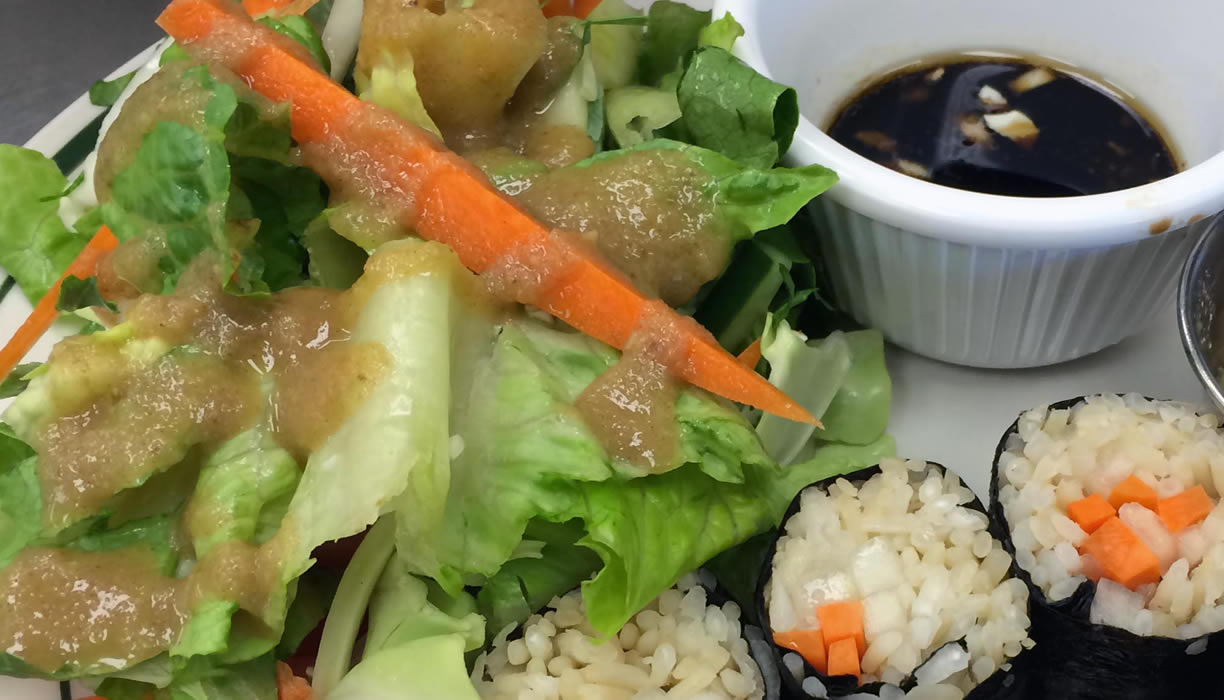
Natural Chef Culinary Program
Section I: Basic Culinary Techniques
Full Program: 18 weeks; 28 hours/week, total of 504 hours
Section I: 18 weeks, 16 hours/week
Basic Culinary Techniques:
9:00 am - Noon: M, T, W, Th, and F (4 hours)
Sanitation/Safety/Knife Skills:
Kitchen Equipment, Tools, Knife Skills, ServSafe. This class is a prerequisite for Section I and II. It is also considered a corequisite because it will be taken at the beginning of the program.
A certificate for ServSafe will be given at the completion of the hours and is required for Section I and II. If a student wishes to take only the Natural Chef afternoon program, he/she must show a previously completed ServSafe certificate or take an evening (16 hour) or Saturday (16 hour) class. Hours include class lecture, demonstration, and laboratory work in the kitchen.
Culinary Math:
This vital subject will be a continuous learning profile as the student plans menus and prepares dishes in the cooking phase of the program. Instructor will emphasize techniques and teach students how to achieve accuracy when adjusting recipe, service, portion, and purchase amounts to fit menus the students will plan and prepare.
Basic Menu Planning:
This class will provide guidelines for planning menus for a variety of meals and specific diet needs. In addition, students will continue learning principles as they plan menus for Friday restaurant and Natural Chef therapeutic menu planning classes.
Food and Cooking Terminology:
As students proceed in this course, they will learn the terminology associated with specific foods and food preparation techniques from beginning to advanced cooking assignments in the kitchen laboratory. Students will compile a glossary of the learned terminology.
Beginning Baking:
Course involves reading and understanding recipes, as well as developing knowledge of the basic principles of baking-from healthy, simple baked goods to yeast, sour dough, and whole grain products. Principles of baking taught in this class will continue throughout the program and further develop as students create menus for the restaurant classes.
Garde manger:
Course includes the following: preparation of cold foods, such as salads, cold dishes, soups, and cold desserts. Students will practice in the kitchen laboratory as they plan and prepare dishes associated with the seasons and use locally grown crops made available to them.
Foundations of Cooking, Kitchen Laboratory:
Food preparations include the following: stocks, sauces, greens, vegetables, grains, fish, meats, vegetable proteins, legumes, appetizers, breakfast, lunch, and dinner preparations. The use of sustainable, healthy, organic, and locally grown produce and food products will be an integral part of this cooking laboratory.




